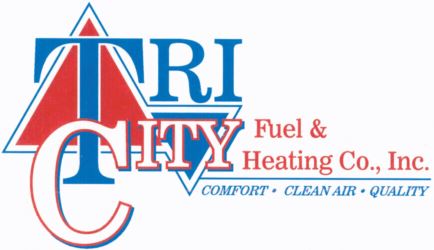
If you’re questioning whether your West Columbia home has bad indoor air quality (IAQ), it possibly does.
We are indoors a lot. In fact, we’re in a building up to 90% of the time, according to the U.S. Environmental Protection Agency. And the air inside residences could be 2–5 times worse than outdoors, which may create long-term health problems.
Most Common Sources of Unsatisfactory IAQ
We’ve made a list of the most ordinary causes of inferior IAQ, the issues they cause and how you can remedy these indoor air pollutants. If you’re worried about the air inside your home, we recommend talking with a expert like Tri City Fuel & Heating about which products are ideal for your family.
Volatile Organic Compounds
Volatile organic compounds, or VOCs, are fumes leaked by regular household items.
They’re found in paint and stains along with:
- Furniture
- Carpet
- Building materials
- Cleaning products
- Cosmetics
- Air fresheners
- Candles
When these vapors accumulate indoors, they may irritate your eyes, nose and throat. They can also create headaches and nausea. Regardless of whether your house is in a rural or industrial area, an EPA study found indoor levels of these pollutants can be 2–5 times worse than the air outdoors.
Always adhere to the manufacturer’s guidelines when applying paint or spraying cleaning products. Opening a window can help chemicals disperse faster.
Air purification systems can also better your air. This equipment partners with your heating and cooling equipment to improve indoor air. When seeking one, ensure it’s specifically made to eliminate VOCs.
Dust and Pet Dander
Dust and pet dander can aggravate health problems like asthma and allergies, especially when it constantly gets moved by your residence’s comfort system. While you can vacuum more routinely and get an improved air filter, an air filtration system could be a better fit.
This solution hooks to your HVAC equipment to deliver mighty filtration. Some types provide hospital-level filtration for removing particles and bioaerosols.
Lasting Odors
Newer residences are tightly sealed to enhance energy efficiency. While this is good for your energy expenses, it’s not so good for your IAQ.
Musty odors can hang around for a greater amount of time as your home is pulling in reduced fresh air. As keeping your windows open all year-round isn’t an option, here are two ways you can make your indoor air smell better.
An air purification system is put in your ducts to eliminate odors before they are redistributed. Find one with a carbon filter and the power to break down damaging VOCs. This equipment can also help keep your family healthy by wiping out most bacteria and normal allergy triggers like pollen and mold spores.
A ventilation system pulls out stuffy indoor air and replaces it with fresh outdoor air. There are two kinds of systems (heat recovery and energy recovery), so call our professionals for more details on which kind is ideal for your house.
Unbalanced Humidity
It’s essential your residence’s humidity keeps even. Air that’s too humid can cause mold, while dry air can lead to respiratory symptoms.
Our pros suggest 40–50% for ideal comfort. To keep yours even, think about getting a whole-home humidifier or whole-home dehumidifier with your comfort system.
Instead of having to lug a humidifier from room to room, this product delivers balanced humidity across your house.
Carbon Monoxide
Carbon monoxide is colorless gas you can’t smell. It’s a byproduct of insufficient combustion in fuel-burning units, like gas heating systems, water heaters or fireplaces.
It poses a severe health risk. In low levels, it can cause flu-like ailments like headaches and nausea. It may be deadly in heavy amounts.
We advise regular furnace maintenance to ensure your unit is working properly. This work allows our technicians to pinpoint problems before they start, including malfunctions that can cause carbon monoxide leaks.
The best approach to keep your home free of carbon monoxide is to put in detectors. These alarms must be on each floor by bedrooms and living rooms.
Improve Your House’s Air Quality with the Tri City Fuel & Heating Professionals
Aware that your home has bad air quality but not sure how to enhance it? Or unsure which option is right for you? Give our friendly HVAC experts a call at 803-592-9776 or contact us online right away. With free estimates and expert service, we’ll help you find the ideal equipment for your needs and budget.


